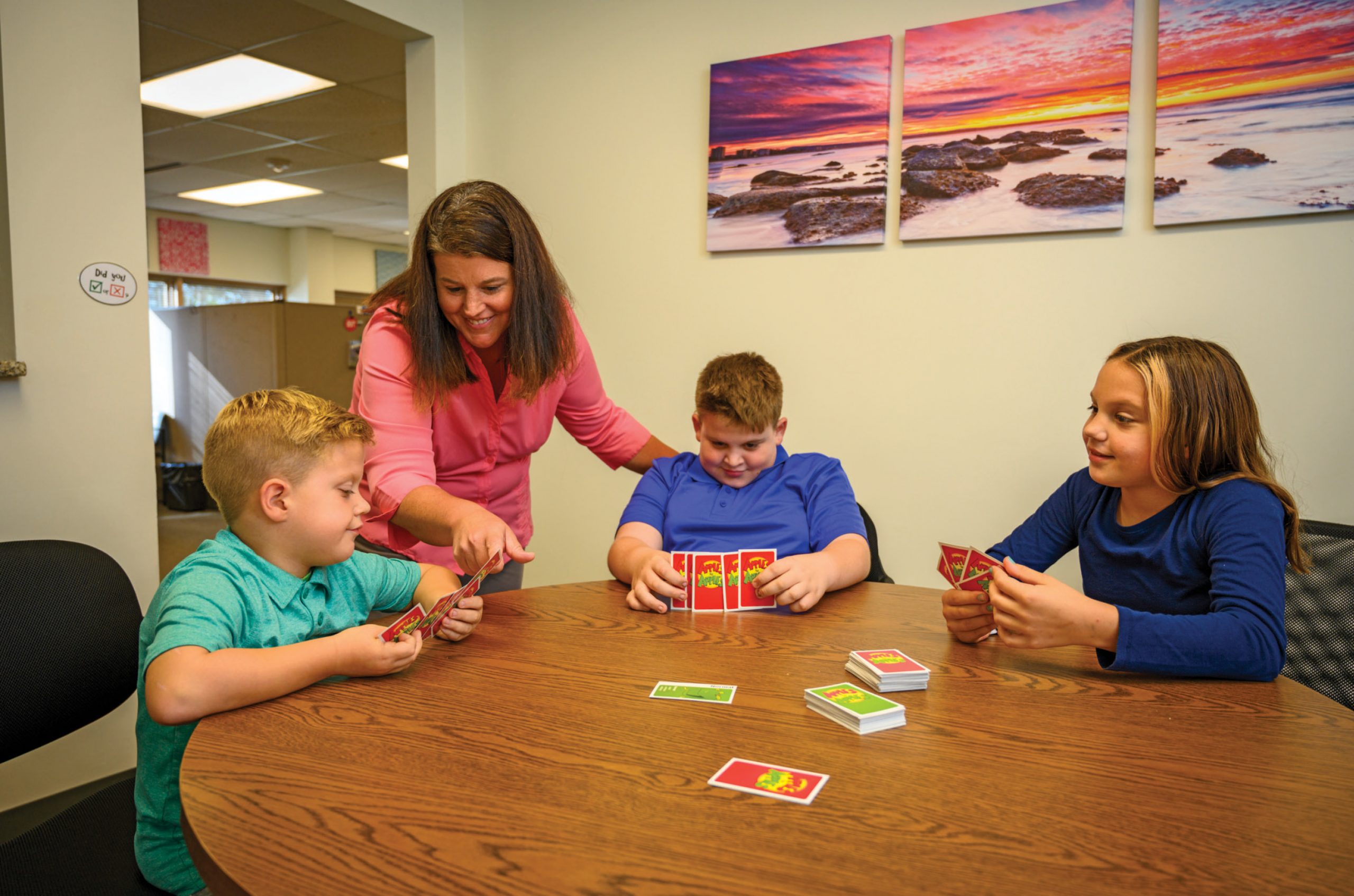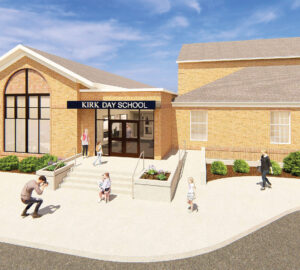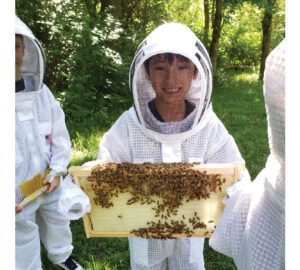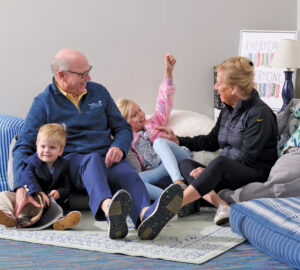When the national organization it was a part of dissolved in 2019, the local chapter of the National Council on Alcoholism and Drug Abuse knew it needed to continue providing services to the St. Louis region. The nonprofit helps guide tough conversations about alcohol and other drugs, and its work is rooted in more than five decades of experience, knowledge of best practices and evidence-informed programs. With that mission in mind, the organization relaunched as PreventEd in 2020 to reflect its dedication to prevention education.
Along with the new name, PreventEd adopted a new logo: two speech bubbles. “When it comes to drugs and alcohol, it needs to be a two-way conversation; no one wants to be talked down to,” executive director Nichole Dawsey explains. “After last year, we all have a new appreciation for how important prevention is when it comes to illness, and substance misuse disorders are a disease that can be prevented. Education is key.” While the nonprofit offers support and resources for people of all ages, its main services center around fostering open conversations with children and teens about making healthy choices and implementing positive coping mechanisms.
PreventEd begins with talking to elementary students about uncomfortable feelings and conflict resolution. For middle and high schoolers, the lessons shift to non-judgemental and open discussions of drugs and alcohol backed by scientific information, not scaremongering. In a typical year, the nonprofit will reach 65,000 students through its programming, but that is only 20% of the population it could be serving, according to Dawsey. If parents or other adults want to start a conversation about drugs and alcohol with kids and teens, PreventEd has created talkaboutitmo.com. The website offers age appropriate talking points, conversation goals and tips so you can keep them from misusing substances in the first place.
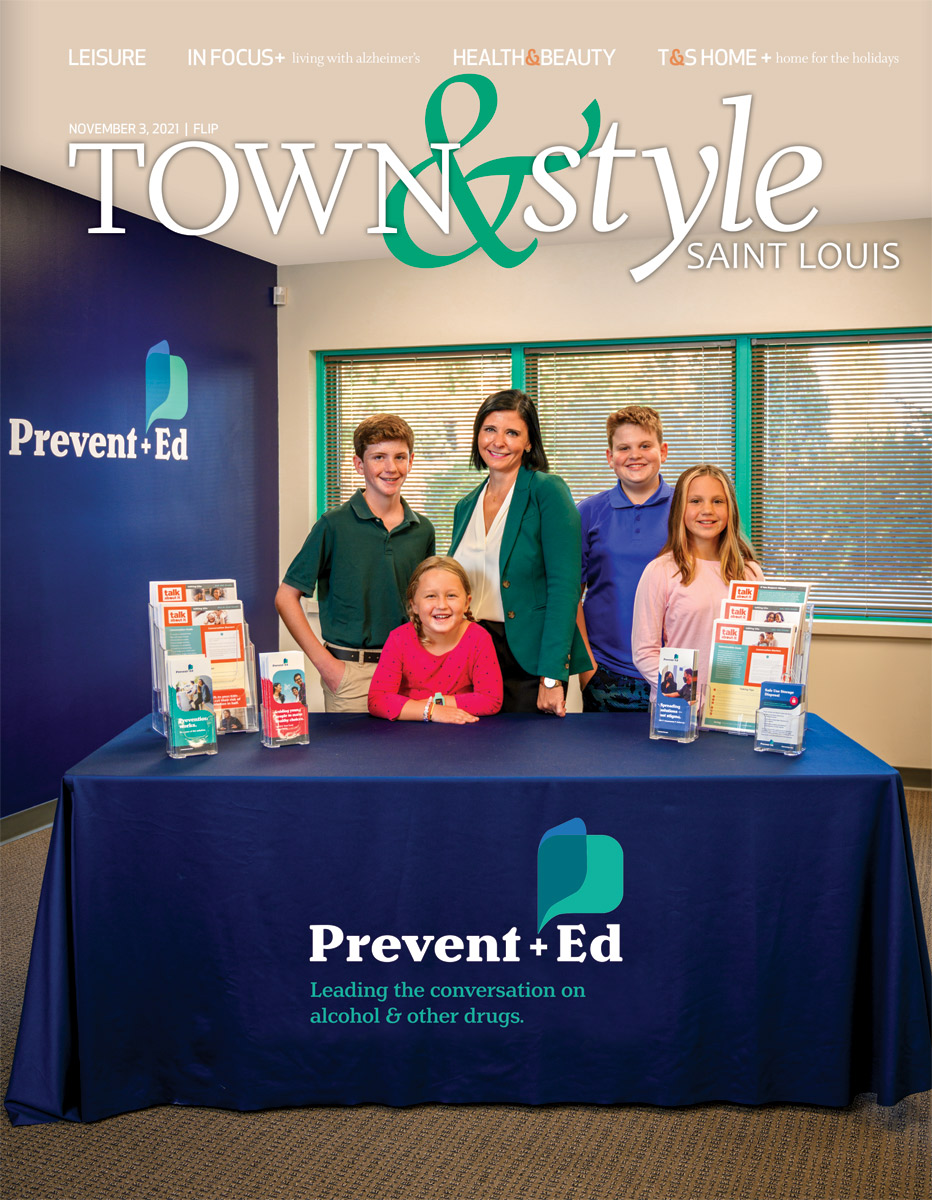 As well as going into schools to talk with students, PreventEd empowers them to lead conversations about substance misuse with each other. Starting in elementary school, fourth- and fifth-graders are trained to be conflict mediators, and in high school, seniors and juniors are shown how to lead conversations about cannabis with younger students. “Research shows that these interactions can be 20% more effective when kids have them with a peer,” Dawsey says. Students also can join ElevatEd, a youth coalition for high schoolers and middle schoolers who are trained to lead Red Ribbon events during Drug Free Week every October.
As well as going into schools to talk with students, PreventEd empowers them to lead conversations about substance misuse with each other. Starting in elementary school, fourth- and fifth-graders are trained to be conflict mediators, and in high school, seniors and juniors are shown how to lead conversations about cannabis with younger students. “Research shows that these interactions can be 20% more effective when kids have them with a peer,” Dawsey says. Students also can join ElevatEd, a youth coalition for high schoolers and middle schoolers who are trained to lead Red Ribbon events during Drug Free Week every October.
PreventEd also provides intervention for teens who are beginning to develop the early signs of substance misuse. Dawsey notes that it’s important for adults to remember it’s normal for teenagers to take risks, and it’s even OK for them to make an unhealthy choice as long as they know they can ask for help. The key for adults is to set up appropriate boundaries and consequences. “We believe in the power of young people,” she says. “People sometimes like to think the worst of the younger generation, but we get to engage with so many teenagers who are incredible. The kids are more than alright; they’re pretty great.”
PreventEd works to reduce or prevent the harms of alcohol and other drug use through education, intervention and advocacy. Pictured on the cover: Executive director Nichole Dawsey with students who have received PreventEd’s programming in their classrooms. For more information, call 314.962.3456 or visit prevented.org.
Cover design by Julie Streiler
Cover photo by Colin Miller of Strauss Peyton Photography
Pictured at top: Deputy executive director Jenny Armbruster models open communication with her family.
Photo: Colin Miller of Strauss Peyton Photography





